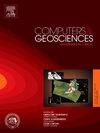Low-code framework for IoT data warehousing and visualization
IF 4.4
2区 地球科学
Q1 COMPUTER SCIENCE, INTERDISCIPLINARY APPLICATIONS
引用次数: 0
Abstract
Background:
The Internet of Things has revolutionized data collection in geosciences through extensive sensor networks. However, developing web-based data warehousing systems for IoT data remains costly and complex. While studies address sensor variability and data ingestion architectures, they often overlook the critical data warehouse component needed to manage IoT data volume and variability. Additionally, Model-Driven Engineering techniques have been used to create dashboards for urban activities but lack advanced map-based visualizations, which are essential for geospatial data.
Objectives:
This study aims to address the challenges of creating IoT data warehouses for geosciences, encouraging scientists to share sensor data analysis results using a simple, user-friendly, and cost-effective approach.
Methods:
The proposed framework integrates (i) a Domain-Specific Language metamodel to define sensors, dimensions, and measurement parameters, (ii) a Software Product Line for IoT data warehouse creation, and (iii) a low-code platform with command-line and web interfaces. The approach was validated through four case studies: meteorological, traffic and air quality, coastal, and oceanic monitoring systems.
Results:
The framework enables efficient IoT data warehouse creation with customized spatial, temporal, and attribute aggregation. Case studies demonstrate adaptability across domains, supporting real-time data ingestion, sensor mobility, and advanced visualization.
Conclusion:
The study presents a scalable, user-friendly framework for IoT data warehousing in geosciences using SPL and DSL technologies, addressing domain-specific challenges and empowering non-expert users. Future work includes usability assessments and expansion to other domains.
物联网数据仓库和可视化的低代码框架
背景:物联网通过广泛的传感器网络彻底改变了地球科学的数据收集。然而,为物联网数据开发基于web的数据仓库系统仍然成本高昂且复杂。虽然研究涉及传感器可变性和数据摄取架构,但它们往往忽略了管理物联网数据量和可变性所需的关键数据仓库组件。此外,模型驱动工程技术已用于为城市活动创建仪表板,但缺乏高级的基于地图的可视化,这对于地理空间数据至关重要。目的:本研究旨在解决为地球科学创建物联网数据仓库的挑战,鼓励科学家使用简单,用户友好且具有成本效益的方法共享传感器数据分析结果。方法:提出的框架集成了(i)一个领域特定语言元模型来定义传感器、尺寸和测量参数,(ii)一个用于物联网数据仓库创建的软件产品线,以及(iii)一个具有命令行和web界面的低代码平台。该方法通过气象、交通和空气质量、海岸和海洋监测系统四个案例研究得到了验证。结果:该框架通过自定义的空间、时间和属性聚合实现了高效的物联网数据仓库创建。案例研究展示了跨领域的适应性,支持实时数据摄取、传感器移动性和高级可视化。结论:该研究提出了一个可扩展的、用户友好的框架,用于使用SPL和DSL技术的地球科学物联网数据仓库,解决了特定领域的挑战,并为非专业用户提供了支持。未来的工作包括可用性评估和扩展到其他领域。
本文章由计算机程序翻译,如有差异,请以英文原文为准。
求助全文
约1分钟内获得全文
求助全文
来源期刊

Computers & Geosciences
地学-地球科学综合
CiteScore
9.30
自引率
6.80%
发文量
164
审稿时长
3.4 months
期刊介绍:
Computers & Geosciences publishes high impact, original research at the interface between Computer Sciences and Geosciences. Publications should apply modern computer science paradigms, whether computational or informatics-based, to address problems in the geosciences.
 求助内容:
求助内容: 应助结果提醒方式:
应助结果提醒方式:


